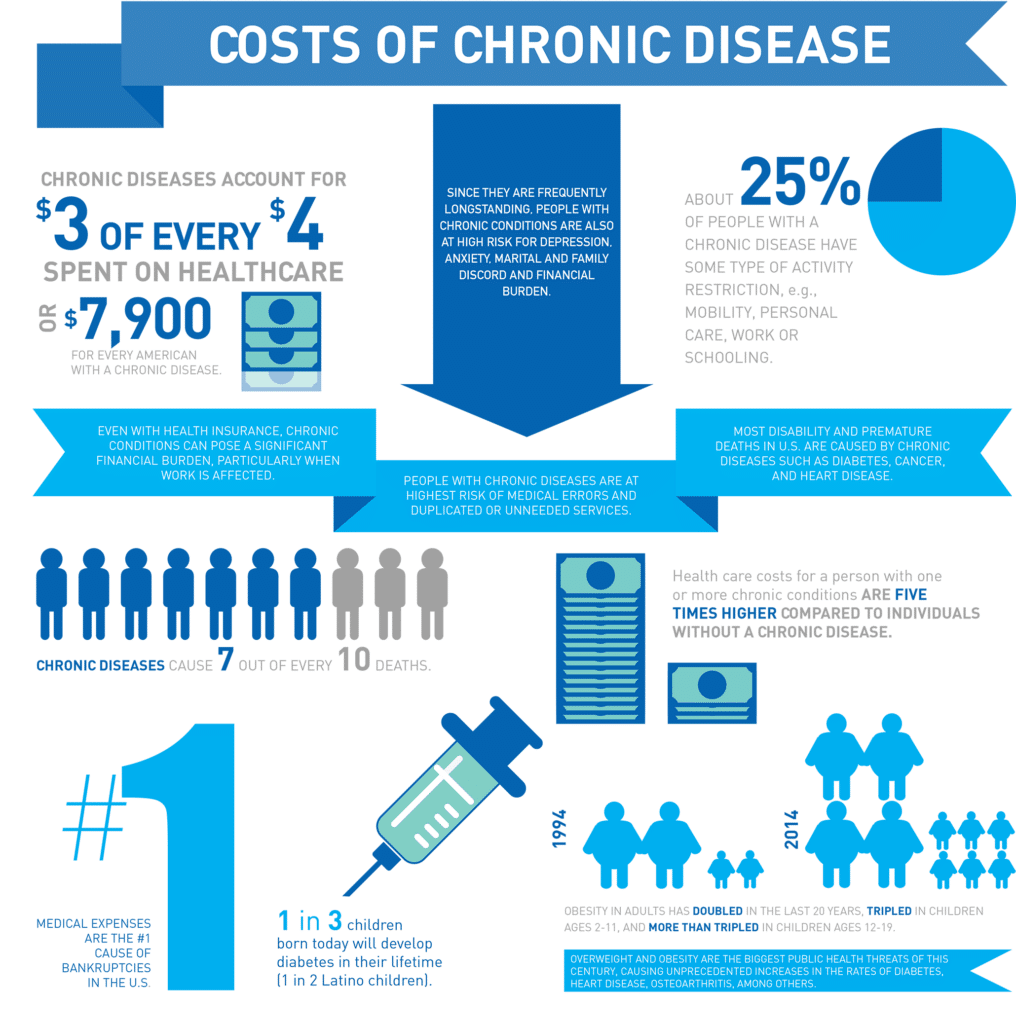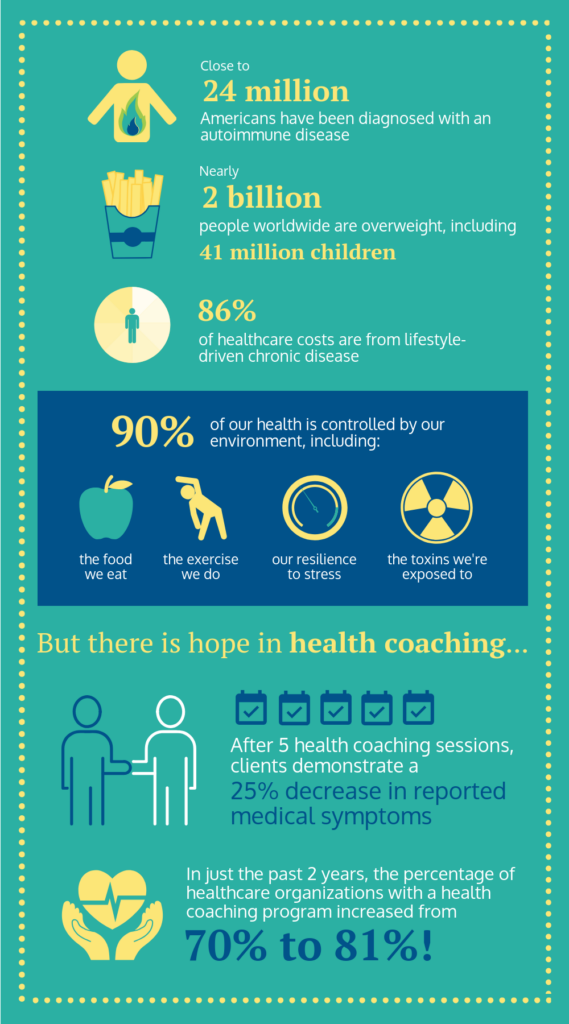When the conventional model of medicine was born, the primary causes of disease were acute infectious diseases such as tuberculosis, typhoid, and pneumonia. The “one doctor, one cause, one treatment” paradigm was effective at restoring health at this time.
Today, seven of ten deaths in the United States are caused by chronic disease.
According to the Centers for Disease Control, in the U.S. alone, chronic diseases account for nearly 75 percent of aggregate healthcare spending or an estimated $5300 per person annually.
More than two-thirds of all deaths are caused by one or more of these five chronic diseases: heart disease, cancer, stroke, chronic obstructive pulmonary disease, and diabetes.
In fact, today one in four U.S. adults have two or more chronic conditions and more than half of older adults have three or more chronic conditions
According to the CDC, the top five behaviors for preventing chronic disease include not smoking, getting regular physical activity, consuming moderate amounts of alcohol or none at all, maintaining normal body weight, and obtaining daily sufficient sleep.

It’s evident that chronic disease is the single biggest threat to our health today. In order to prevent and reverse chronic disease, one needs behavior change. However, the reality is that behavior change is difficult, and most people don’t know how to do it successfully.
Moreover, most doctors, nurses, and physician assistants aren’t trained in behavior change. Instead, they are trained in the “expert” model of care, where they simply tell patients what to do and expect them to do it.
This is where health coaches come in.
Health coaching has risen 38 percent in the last few years. With the turn toward preventative medicine to reduce health costs, as well as the push to address chronic illness, health coaches will be in an excellent position to create their own health coaching business or get a job in a clinic, hospital, or corporate setting.
Additionally, in the last 2 years, the percentage of healthcare organizations with a health coaching program increased from 70% to 81%.
Studies show that health coaches can help people manage chronic conditions such as diabetes, lose weight, and keep it off, increase movement and activity, and generally improve their physical and mental health.
As seen with the rise of corporate wellness programs since the 2000s, companies want healthier employees to increase productivity and lessen health insurance claims, which explains why the health coaching role has become so utilized in the health sector.
With the recent changes to our nation’s healthcare system, commercial insurance companies are encouraging and covering health counseling and fitness training more extensively than ever before. A win-win for payor, employer, and employee/insured.
When people are educated about their health, they are more likely to make healthier choices and to recognize and treat problems before expensive complications occur. Changes in the nation’s health coverage standards are adding to this drive, further improving the job outlook for health coaches.
According to Indeed, as of 2016, the nationwide average salary for “health coaches” is around $41,000. A search for “certified health coach“, however, returns a nationwide average salary figure of $68,000.
This difference stresses the importance of certification, although it’s important to note the greater pay associated with certified health coaches may also involve clinical background or graduate-level education requirements and more job responsibilities.
As the nation becomes more and more health-conscious, there is a large push towards making lifestyle changes that promote long-term health and well-being. This increased awareness from workplaces, both commercial and non-commercial health insurance organizations, clinical professionals and the general public that overall lifestyle change is necessary for improved health has resulted in the expansion of the need for health and wellness coaches.
Health coaches are at the forefront of today’s health revolution. At a time when one in five people will die of lifestyle-related disease, as well as when diabetes and obesity are at an all-time high, health coaches provide the nutritional and lifestyle guidance society desperately needs to find it’s way back to health.
Our Latest Blogs
-

Food Sensitivity Testing 101: Supporting Clients with Inflammation and Gut Issues
Read Full Article: Food Sensitivity Testing 101: Supporting Clients with Inflammation and Gut Issues -

Protein 101: The Health Coach’s Guide
Read Full Article: Protein 101: The Health Coach’s Guide -

Women’s Health and the Vaginal Microbiome: A Probiotic Breakthrough
Read Full Article: Women’s Health and the Vaginal Microbiome: A Probiotic Breakthrough


